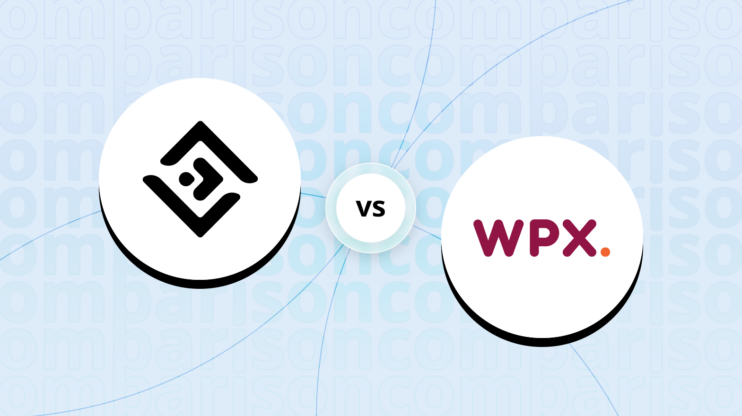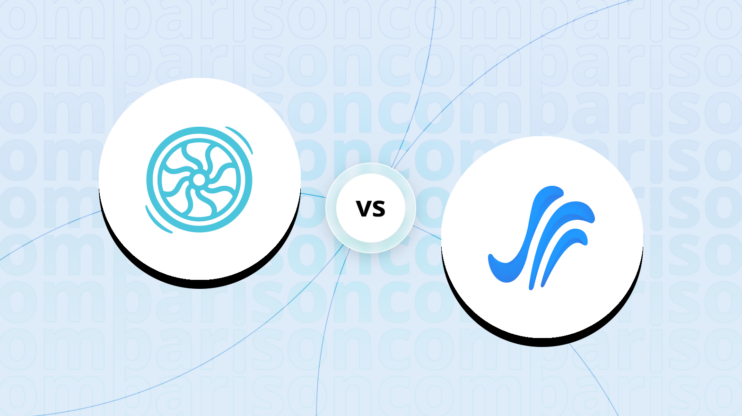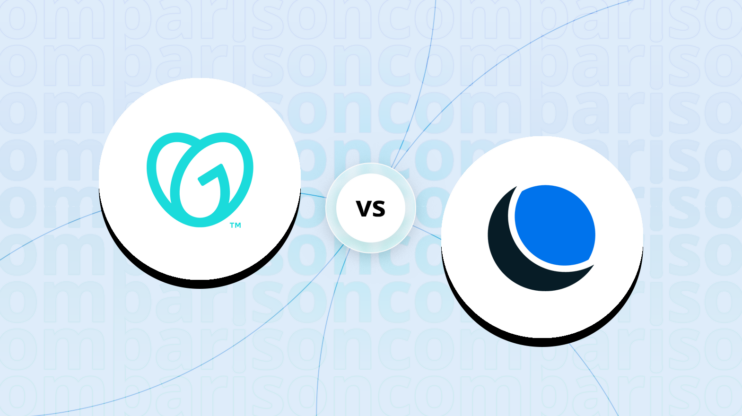Pagely vs Chemicloud: Final verdict
Looking over Pagely vs. ChemiCloud, it’s clear why both hosts are so popular. They have both hosted millions of
websites that run on WordPress for decades, building up a loyal customer base.
-
ChemiCloud (Overall grade: 8.5)
provides a wide range of hosting options, including shared, VPS, and WordPress hosting, which make it versatile for different user needs. Its standout features like enterprise-grade SSD storage, DDoS protection, and a free CDN via Cloudflare contribute to its excellent performance and reliability. The intuitive interface, free website migration, and comprehensive email hosting service make it an ideal choice for individuals and small to medium-sized businesses. However, it does fall behind Pagely in terms of advanced security and high-traffic handling capabilities, which can be a limitation for larger enterprises.
Pagely (Overall grade: 8.1)
offers cloud and WordPress hosting with exceptional uptime and high availability architecture, leveraging AWS for robust performance and global reach. Its advanced features serve businesses focusing on e-commerce, agencies, and high-traffic websites well, providing superior support, disaster recovery, and high-availability configurations. Pagely’s multi-region redundancy and stringent security measures are key strengths, but the high starting price and lack of integrated email hosting could deter smaller businesses or budget-conscious users. While it excels in providing a tailored solution for enterprise-level needs, the cost can be seen as a significant drawback.
 Overall grade:8.1 |
 Overall grade:8.5 |
|
|---|---|---|
| Uptime and Availability | 9.5 | 9.3 |
| Hosting Performance | 8.8 | 8.9 |
| Hosting Security | 9.2 | 8.8 |
| Price | 7.4 | 8.3 |
| Hosting Features | 4.6 | 7.5 |
| Ease Of Setup | 8.2 | 8.8 |
| User Management | 8.4 | 8.0 |
| Customer Support | 8.9 | 8.3 |
| User feedback | 4.9/5 | 4.9/5 |
Hosting types offered
Both platforms provide a variety of hosting types, each designed to meet the different needs of users.
 |
 |
|
|---|---|---|
| Shared hosting | ||
| Cloud hosting | ||
| WordPress hosting | ||
| Ecommerce hosting | ||
| VPS hosting | ||
| Dedicated hosting |
Although both offer a variety of hosting plans tailored to different needs, in
certain cases, one platform may prove to be more suitable.
Detailed comparison
Uptime and availability
Evaluates the average uptime statistics, uptime guarantee and overall availability of the hosting
provider
Score Components:
- Uptime percentage (30%): evaluates the uptime statistics in given period of time
- Uptime guarantee (20%): Assesses if the platform offers an uptime guarantee and
whether the actual uptime matches the promised guarantee. - General performance (25%): Evaluates how fast is the average response time and overall
it’s stability. - Responsiveness (10%): Adaptability to different devices and screen sizes.
- Availability (25%): Reflects the total downtime and number of outages.
 9.5
9.5
 9.3
9.3
🏆 Winner Pagely: Exceptional uptime and high availability architecture.

Pagely’s uptime and availability features make it stand out as a top-tier hosting provider. The 99.99% guaranteed uptime, combined with global data centers, ensures continuous reliability. With multi-region redundancy and 24/7 monitoring, businesses can count on minimal downtime. Additional safeguards like disaster recovery and emergency fallback solutions further enhance site availability.
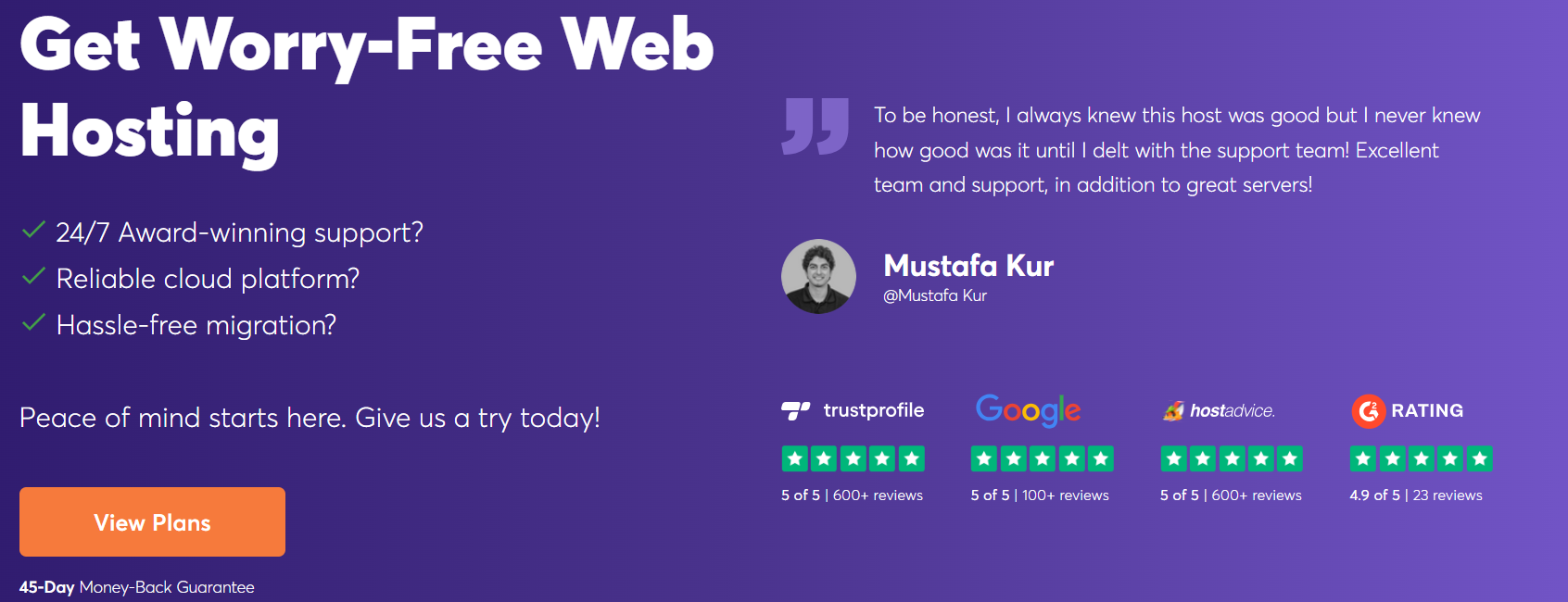
ChemiCloud also offers impressive uptime and availability with a 99.99% guarantee and 100% network uptime. The cloud infrastructure is secure and reliable, with DDoS protection and real-time network security. Users benefit from 24/7 server and website monitoring, along with additional perks like free SSL certificates and daily backups. ChemiCloud provides robust compensation if uptime falls below their guarantee.
Which one has better hosting performance?
Score Components:
- Hosting speed (30%): This includes SSD quality, Load times, PageSpeed score ranges,
additional information on website speed, built-in plugins for performance enhancement, available caching
methods, and CPU/RAM options - CDN (20%): Considers whether CDN is available or not, whether it’s free or paid, and
the quality of the CDN service - Available data centers (30%): Evaluates the number of data centers and their locations
globally. - Scalibility (20%): Looks at whether elastic scaling is available, the process required
to scale (manual upgrade vs. automatic scaling), the presence of dedicated servers, and the costs
associated with scaling.
 8.8
8.8
 8.9
8.9
🏆 Winner ChemiCloud: Excellent performance features and a wide range of global data centers.
When it comes to general performance, ChemiCloud possesses a competitive edge with its superior LiteSpeed Web Server, which includes cutting-edge caching technology. Combined with HTTP/3 Protocol, PHP 8, and 100% NVMe storage, the speed and reliability are impressive. On the other hand, Pagely offers high-end configurations like flexible vCPU, RAM, and SSD Storage options, but lacks the advanced caching methods and latest technologies found in ChemiCloud’s arsenal. Both hosts provide a CDN, with ChemiCloud offering it for free via Cloudflare, whereas Pagely’s advanced network security integrates superior caching and CDN technology. ChemiCloud also excels with numerous worldwide server locations, ensuring low latency, while Pagely leverages AWS with scalable performance but doesn’t specify the number of data centers.
Website Speed
ChemiCloud ensures fast load times through LiteSpeed Web Server and aggressive caching methods. HTTP/3, 100% NVMe storage, and global server locations also contribute to its superior performance metrics. Pagely, while strong with its advanced network security and 99.99% uptime SLA, falls short of ChemiCloud’s extensive use of cutting-edge performance technologies. With free Cloudflare CDN integration, ChemiCloud can further reduce latency and enhance loading speed for visitors around the globe.
Scalability
Pagely offers elastic scaling with custom configurations for its Scale plan, starting at $2500 per month. It includes bespoke vCPU, RAM, and SSD storage, along with dedicated database resources. However, ChemiCloud’s scalability details are not explicitly mentioned, which might pose challenges for businesses with rapidly changing needs. Pagely’s managed DevOps and support, combined with its high availability configurations, offer a robust solution for scaling, but the high starting prices could be a deterrent for smaller businesses looking for cost-effective options.
Which one has better security features?
and regulatory requirements
Score Components:
- Technical security measures (40%): This includes encryption, firewalls, DDoS
protection, secure configurations, server monitoring, access control and availability of security addons
(e.g Sitelock security). - Operational security measures (30%): Encompasses data privacy, backups and data
redundancy. - Compliance and certifications (20%): Adherence to legal and regulatory requirements
(e.g., GDPR, HIPAA) and possession of certifications (e.g., ISO 27001, SOC 2). - Business and reliability (10%): Factors in the provider’s reputation, uptime
guarantees, and customer support.
 9.2
9.2
 8.8
8.8
🏆 Winner Pagely: Pagely offers advanced security features and compliance capabilities that surpass ChemiCloud’s offerings.
Both Pagely and ChemiCloud, have notable differences in their approaches to technical and operational
security, as well as in their compliance with regulations.
Technical security measures:
Pagely and ChemiCloud provide robust technical security features, but with notable differences. Pagely supports SSL certificates from both Let’s Encrypt and custom providers, whereas ChemiCloud offers free Let’s Encrypt SSL certificates. For PHP versions, Pagely ensures long-term support for PHP 7.4 and newer, but ChemiCloud supports a broader range of PHP versions from 5.6 to 8.2. Both providers feature Web Application Firewalls, but Pagely’s proprietary solution may provide a slight edge. Pagely implements resource isolation with dedicated resources, while ChemiCloud uses CageFS for tenant isolation. Additionally, both services offer robust DDoS protection through AWS Shield Standard and advanced DDoS mitigation, respectively.
Operational security measures:
Pagely and ChemiCloud have comprehensive operational security to protect their services. Pagely’s 24/7 uptime monitoring ensures quick issue detection and response, with customizable 2FA for enhanced protection. ChemiCloud also offers 2FA and provides KernelCare’s rebootless secure kernel updates. Anti-spam filtering, real-time malware scanning, and vulnerability patching are particular strengths for Pagely, while ChemiCloud’s Imunify360 proactive defense and account isolation offer substantial security operations. Both hosting services support daily backups and spam filtering, but Pagely’s emergency backup solutions provide a faster reclamation in case of incidents.
Compliance and certifications:
When it comes to compliance, Pagely is robust with SOC 2, GDPR, and PCI-DSS certifications. ChemiCloud primarily emphasizes GDPR compliance and provides a Data Processing Addendum (DPA). Pagely’s extensive compliance measures cover local regulations, ensuring comprehensive data protection and security policies. In contrast, ChemiCloud focuses on GDPR but lacks mentionable other specific compliance certifications like PCI-DSS or SOC 2.
 |
 |
|
|---|---|---|
SSL certificate |
Yes |
Yes |
Additional security features |
Yes |
Yes |
PHP versions |
7.4+ |
5.6 – 8.2 |
GDPR compliance |
Yes |
Yes |
HIPAA compliance |
Not specified |
Not specified |
PCI compliance |
Yes |
Not specified |
Hosting features
Score Components:
- Domains (20%): Assesses the availability of a free domain, domain purchase options, and
pricing - Email (15%): Considers if the provider offers full email hosting, or is reselling
third-party service, and if the email is only transactional or not - Website builder (15%): Checks if website builder is available, and it’s user
friendliness and overall the level of customization allowed. - Staging environment (20%): Determines if a staging environment is available, allowing
for testing changes before going live. - FTP & SFTP accounts (10%): Evaluates if and how easily users can access FTP and
SFTP accounts - Git and SSH access (20%): Assess whether Git is integrated into the hosting service and
if SSH access is provided
 4.6
4.6
 7.5
7.5
🏆 Winner: ChemiCloud: Versatile and affordable hosting solutions with extensive email features.
Both Pagely and ChemiCloud stand out in their own right, catering to diverse needs through their hosting services. Pagely excels with its high availability architecture backed by Amazon AWS, offering advanced caching, excellent performance, and rigorous security measures. Users benefit from managed WordPress upgrades, flexible configurations, and robust tools like SSH, GIT, and WP-CLI. These features make it a robust solution for enterprises demanding high uptime and customization. On the other hand, ChemiCloud offers a more budget-friendly option, making it an attractive choice for small to medium-sized businesses looking for comprehensive services like unlimited websites, free SSL, and website migrations. Its intuitive user interface and Drupal hosting options offer straightforward website management, making it ideal for beginners.
Regarding unique features, Pagely emphasizes its commitment to advanced support and high performance with superior network security, managed DevOps, and rapid provisioning. Costs might be a potential limiting factor for some users, with entry-level plans starting at $375 per month. ChemiCloud’s competitive pricing, starting at $2.95 per month for shared hosting, appeals to those needing cost-effective solutions without compromising on essential features like email hosting and free daily backups. Furthermore, ChemiCloud provides a free domain for the first year and an easy-to-use drag-and-drop website builder, empowering users to launch and maintain their sites effortlessly.
 |
 |
|
|---|---|---|
| Free domain | No | Yes, for the first year |
| Free SSL | Yes | Yes |
| Email hosting | No | Yes |
| Website builder | No | Yes |
| Staging environment | Yes | Yes |
| FTP & SFTP accounts | Yes | Yes |
| Git and SSH access | Yes | Yes |
| Free backup | Yes | Yes |
| Money back guarantee | No | Yes, 45 days |
Both providers support a range of users from beginners to experts with user-friendly website builders and WordPress staging areas. However, in terms of developer tools, both Pagely and ChemiCloud offer robust options including SSH access, support for multiple programming languages, and Git for version control, thus appealing to developers looking for advanced capabilities.
Email services:
Pagely lacks integrated email hosting services, making users rely on third-party services for email needs. Conversely, ChemiCloud offers comprehensive email hosting with features like mailbox storage, email forwarders, and spam filters. It allows multiple email accounts with 2 GB storage per account and seamless integration for email clients. ChemiCloud also offers advanced email features like MailChannel and autoresponders, providing a complete email solution for businesses.
Price
Score Components:
- Plan value (40%): What each pricing tier offers.
- Transparency and clarity (30%): Clearness of pricing structures.
- Flexibility of plans (20%): Range of options to suit different budgets.
- Hidden costs (10%): Additional expenses not included in the plan.
 7.4
7.4
 8.3
8.3
🏆 Winner: ChemiCloud: More affordable plans with extensive features for different hosting types.
Evaluating the pricing of plans among various hosting providers can be complex due to their differing pricing and renewal strategies. Additionally, certain plans require annual commitments, which adds to the difficulty of making comparisons. The prices listed are based on monthly commitments; plans requiring annual commitments are indicated. Additionally, although some providers offer identical plans for WordPress and shared hosting, we have created separate tables for each to enhance clarity.
Pagely and ChemiCloud offer distinct options for WordPress and shared hosting with a variety of features. Pagely’s plans cater mostly to enterprise-level needs with prices starting at $199/mo and going up to $2500/mo for custom configurations. ChemiCloud offers more budget-friendly options, with Shared and WordPress hosting plans starting as low as $2.95/mo. ChemiCloud also provides VPS hosting with full management and a range of resources, which Pagely doesn’t offer directly. For enterprise solutions, both providers offer high-end managed services, but with varying levels of customization and pricing structures.
 |
 |
|---|---|
|
Developer 1$199
1 website, 30 GB SSD, unlimited bandwidth, managed support, PHP support. Value for price:7.0
|
WordPress Starter$9.95
1 website, 20 GB NVMe, unlimited bandwidth, free domain & SSL, daily backups. Value for price:8.5
|
|
Developer 2$299
1 website, 30 GB SSD, unlimited bandwidth, managed support, PHP support. Value for price:7.2
|
WordPress Pro$15.95
unlimited websites, 30 GB NVMe, unlimited bandwidth, free domain & SSL, daily backups. Value for price:9.0
|
|
Performance Lite$375
1 website, 50 GB SSD, unlimited bandwidth, managed DevOps, PHP support, flexible configuration. Value for price:7.5
|
WordPress Turbo$19.95
unlimited websites, 40 GB NVMe, unlimited bandwidth, free domain & SSL, daily backups, malware scanning. Value for price:9.2
|
|
Performance$499
1 website, 50 GB SSD, unlimited bandwidth, managed DevOps, PHP support, flexible configuration. Value for price:7.3
|
N/A |
|
Performance+$999
1 website, 50 GB SSD, unlimited bandwidth, managed DevOps, PHP support, flexible configuration. Value for price:7.0
|
N/A |
|
Scale$2500
custom config, unlimited bandwidth, dedicated resources, managed DevOps, PHP support, flexible configuration. Value for price:7.1
|
N/A |
 |
 |
|---|---|
|
Business Class WordPress Hosting$499
1 website, 50 GB SSD, unlimited bandwidth, developer-friendly tools, CI/CD support. Value for price:7.4
|
Starter$9.95
1 website, 20 GB NVMe, unlimited bandwidth, free domain & SSL, daily backups. Value for price:8.5
|
| N/A |
Pro$15.95
unlimited websites, 30 GB NVMe, unlimited bandwidth, free domain & SSL, daily backups. Value for price:8.8
|
| N/A |
Turbo$19.95
unlimited websites, 40 GB NVMe, unlimited bandwidth, free domain & SSL, daily backups, malware scanning. Value for price:9.0
|
 |
 |
|---|---|
|
Enterprise Class WordPress Hosting$2500
multi-region redundancy, enhanced SLAs, personalized support, compliance ready. Value for price:7.1
|
Cloud 1$54.95
unlimited websites, 80 GB NVMe, 4 TB bandwidth, 2×2.20GHz CPU, 4 GB RAM, free SSL, priority support. Value for price:8.1
|
| N/A |
Cloud 2$87.95
unlimited websites, 160 GB NVMe, 5 TB bandwidth, 4×2.20GHz CPU, 8 GB RAM, free SSL, priority support. Value for price:8.5
|
| N/A |
Cloud 3$153.95
unlimited websites, 320 GB NVMe, 6 TB bandwidth, 6×2.20GHz CPU, 16 GB RAM, free SSL, priority support. Value for price:8.7
|
Enterprise plans
Pagely targets large enterprises with its custom and high-availability configurations starting from $2500/mo, offering dedicated database resources, managed DevOps, and multi-region redundancy. ChemiCloud provides comprehensive VPS hosting options that are fully managed with features like private nameservers, white-label options, and priority technical support, making it a versatile choice for growing enterprises.
Pagely vs Chemicloud: Ease of setup
platform.
Score Components:
- Site migration (25%): Assesses whether the provider offers tools for site migration,
either automated or manual, and whether these services are free or require a fee. - Admin panel usability (35%): Evaluates the type of admin panel provided, such as the
standard cPanel or a custom solution, focusing on its accessibility and user-friendliness for both
technical and non-technical users. - Setup features (20%): Examines the availability and ease of use of various setup
features, including FTP accounts, file managers, email account setup, PHPMyAdmin, and easy CDN
configuration. - Help center quality (20%): Measures the quality and accessibility of the provider’s
help center resources, including articles and tutorials.
 8.2
8.2
 8.8
8.8
🏆 Winner ChemiCloud: A user-friendly hosting provider with easy setup and superior customer support.
Pagely features a comprehensive knowledge base and dedicated support channels via ticket and chat. It takes about a day to set up, which might be longer than some competitors but provides thorough assistance through various guides covering WordPress basics, deployment, caching, and more. The admin panel is specialized for WordPress management, aiming to simplify the setup and ongoing management of WordPress sites, although it may require a bit more technical knowledge compared to standard cPanel interfaces.
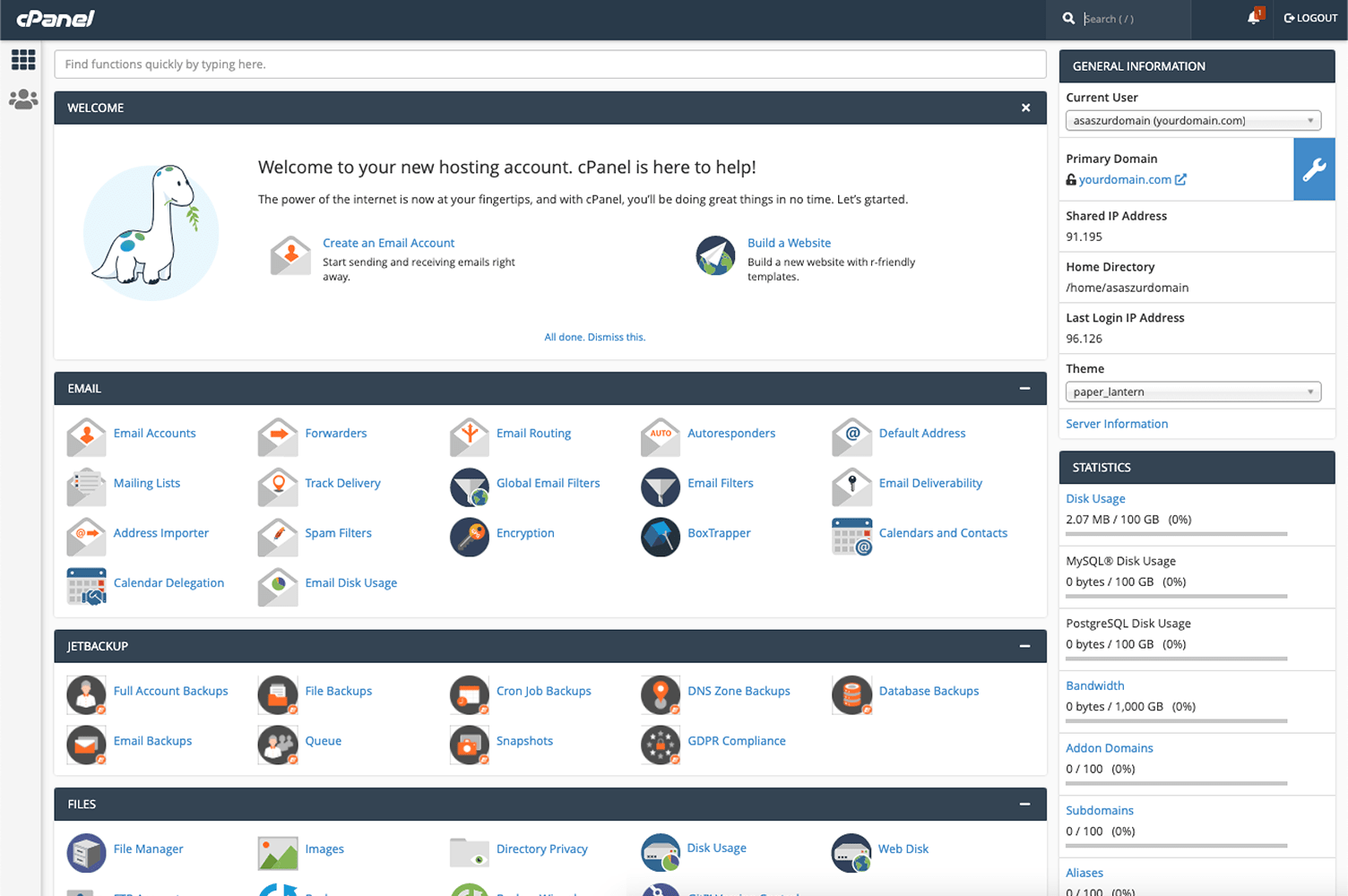
ChemiCloud, on the other hand, offers a more streamlined experience for both beginners and seasoned users. The admin panel is user-friendly and features cPanel quick-launch, making it easy to manage different aspects of your hosting account. The one-click app installer and drag-and-drop website builder make it accessible for non-technical users. Unlike Pagely, ChemiCloud’s setup is faster thanks to its Softaculous feature, reducing the complexity for those less familiar with server management.
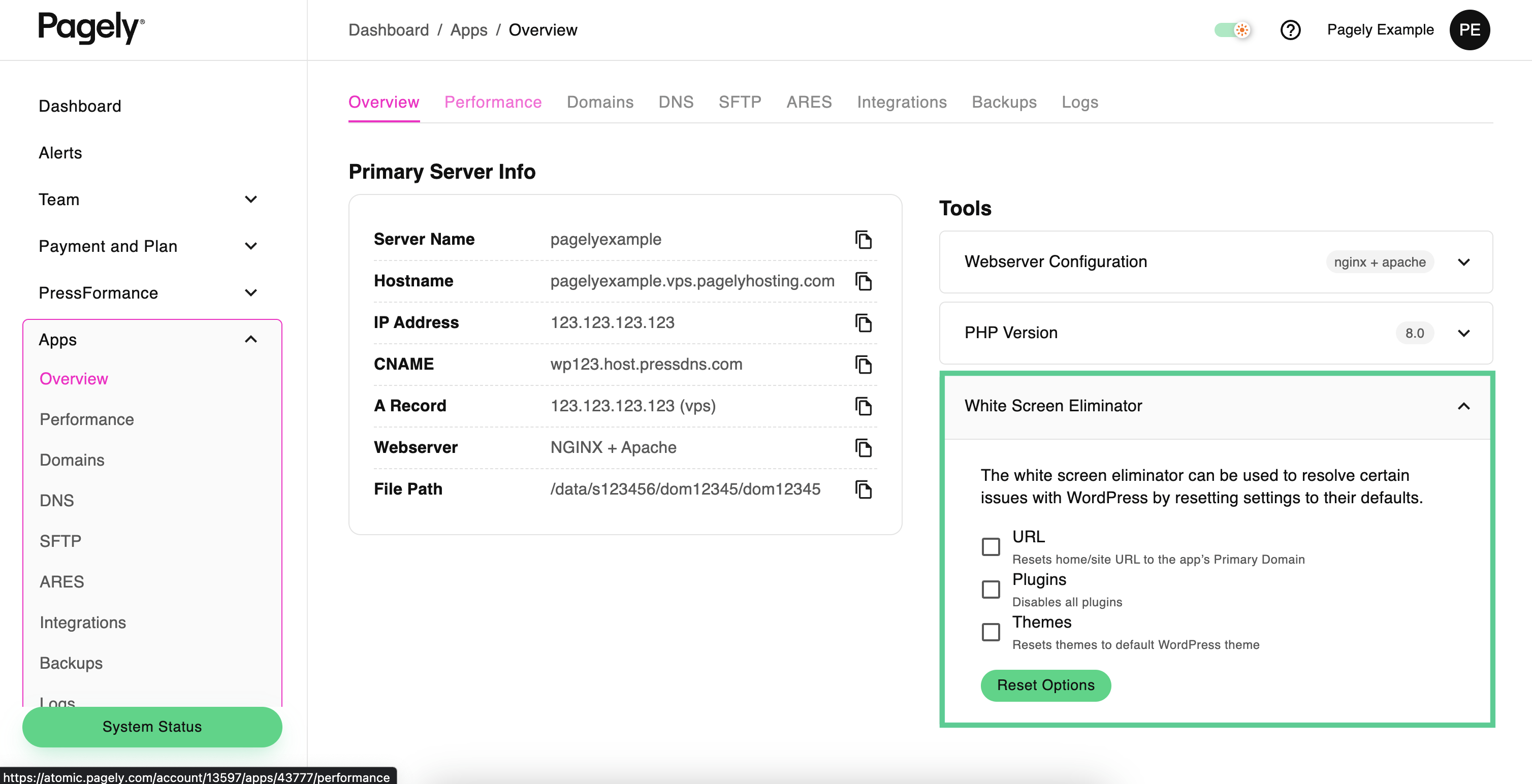
When comparing migration tools, ChemiCloud stands out with its free website migration service, ensuring a smooth and hassle-free transition with zero downtime. This is a significant advantage as it offers peace of mind for users looking to switch hosting providers. Pagely does provide migration assistance but doesn’t explicitly offer a free dedicated service, which could potentially incur additional costs or require more user involvement.
Both Pagely and ChemiCloud have extensive help centers to assist users. Pagely offers a detailed knowledge base with articles on various technical and non-technical aspects, from WordPress basics to security. ChemiCloud also has a comprehensive knowledge base and self-support center, with sections covering a broad range of topics and 24/7 support, including real-time chat. Their help centers are easily accessible, ensuring users can find the information they need efficiently.
User management
accessibility.
Score Components:
- Role customization (40%): Flexibility in creating and defining user roles and
permissions. - Ease of management (30%): User interface and tools for managing users.
- Access control (20%): Effectiveness of access control measures for different user
levels. - Scalability (10%): Ability to manage a growing number of users efficiently.
 8.4
8.4
 8.0
8.0
🏆 Winner: Pagely: Offers extensive user management and user role customization.
Pagely provides a more nuanced system for managing user roles and permissions compared to ChemiCloud. Pagely offers seven distinct roles, ranging from Account Owner to App-Only-Minimal, each with a specific set of permissions. This allows for tailored access management, suitable for various levels of user expertise and operational needs. ChemiCloud, on the other hand, employs a streamlined approach with fewer roles, categorized primarily by functionality—Administrator, Database, Email, and Web. While ChemiCloud’s roles are straightforward, Pagely’s more granular roles offer greater flexibility in assigning permissions.
Pagely’s user management interface includes detailed options for managing SSH/SFTP keys, backups, and two-factor authentication for every role. This contrasts with ChemiCloud’s User Manager in cPanel, which focuses on basic tasks like adding, editing, and deleting users. ChemiCloud’s interface is simpler and more accessible to users familiar with cPanel, but Pagely’s interface is designed to accommodate advanced administrative tasks and detailed permission settings, enhancing control over user activities.
When it comes to access control measures and efficiently managing a growing number of users, Pagely’s granular role differentiation stands out. Each role has clearly defined permissions, which helps in minimizing the risk of unauthorized access and better control over who can perform certain tasks. ChemiCloud’s cPanel interface is efficient for smaller teams and less complex environments, but it lacks the in-depth access control features that Pagely offers, making Pagely a more scalable solution for growing businesses with diverse user roles.
Pagely User Roles Table:
| Role | Description | Access Highlights |
|---|---|---|
| Account Owner | Top-level management, suitable for business owners or primary stakeholders. | Complete control over all aspects including billing, tech, backups, and SSH/SFTP access. |
| Super-Admin | Senior admin role, ideal for IT heads and lead developers. | Same permissions as Account Owner but managed under owner’s oversight. |
| Sub-Admin | Mid-tier admin role for handling site-level and technical management. | Access to manage sites, backups, and user roles, excluding billing. |
| Tech | Focused on technical aspects, suitable for developers and sysadmins. | Manages sites, backups, SSH/SFTP, but not billing. |
| Billing | Financial management, suitable for accountants or finance team members. | Handles billing-related tasks, with access to backups and SSH/SFTP keys. |
| App-Only | Restricted role focusing on app-related tasks and troubleshooting. | Manages own SSH/SFTP keys, supports basic technical operations without sensitive access. |
| App-Only-Minimal | Most restricted role for minimal technical needs and troubleshooting. | Limited to essential app tasks and own SSH/SFTP management. |
ChemiCloud User Roles Table:
| Role | Description | Access Highlights |
|---|---|---|
| Administrator | Full control over the cPanel account, suitable for account managers. | Manages all cPanel functions including email, web, and database tools. |
| Database | Focuses on database management, ideal for DB admins. | Access to database creation, modification, and management tools. |
| Handles email services, suitable for email administrators. | Full access to email creation, management, and quota settings. | |
| Web | Manages web-related functionalities, great for web developers. | Access to website management tools, FTP, and web hosting features. |
Customer support
hosting provider.
Score Components:
- Support communication channels (30%): Measures the variety of customer support types
provided (live chat, chatbot, email, phone, etc.) - Availability (20%): Assesses the availability hours for each channel, including 24/7
support options. - Technical support quality (30%): Assesses whether the provider offers comprehensive
technical support, including hardware upgrades (e.g., HDD to SSD), software installations, and web
server configuration changes. - Enterprise support (20%): Checks if there are dedicated or priority support services
for enterprise-level customers.
 8.9
8.9
 8.3
8.3
🏆 Winner Pagely: Pagely provides outstanding customer support with tierless, highly specialized engineers available 24/7 to resolve issues promptly.
 |
 |
|
|---|---|---|
Phone support |
||
Live chat support |
||
Chatbot |
||
Email/ticket support |
||
Enterprise support (dedicated agent, priority support) |
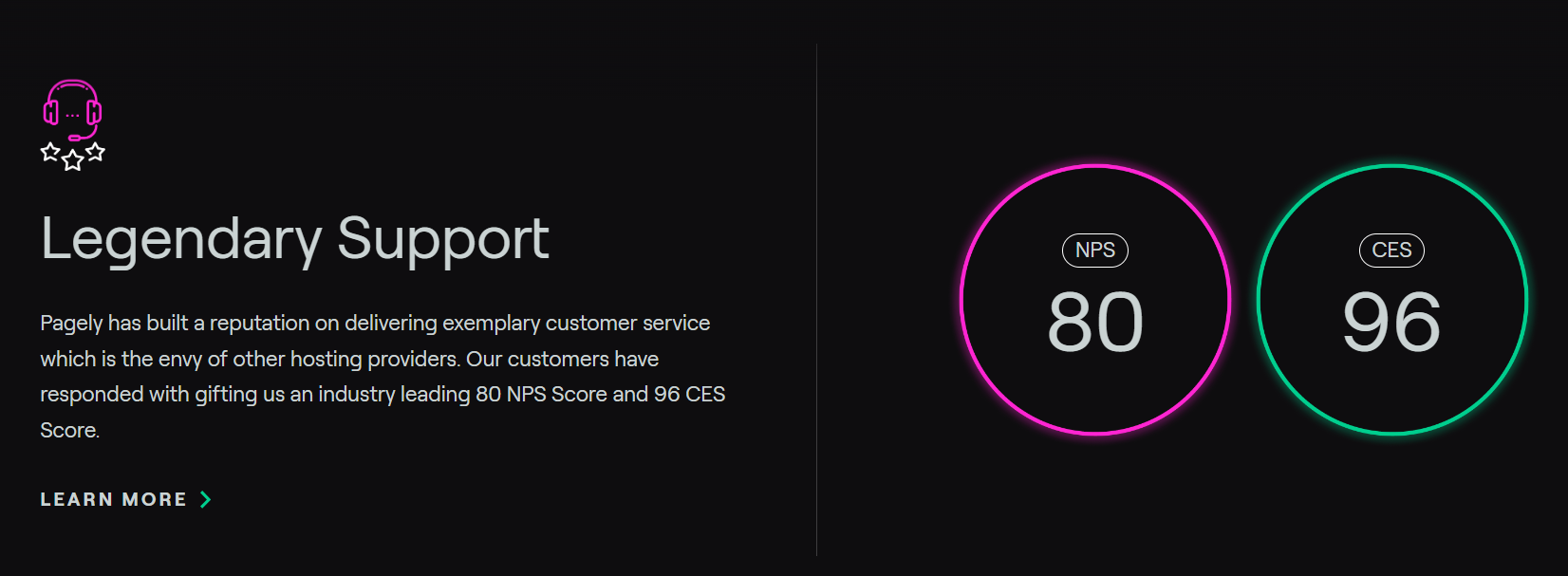
Pagely and ChemiCloud both offer extensive customer support options, including phone support, live chat, and email/ticket support available around the clock. Pagely distinguishes itself with tierless, engineer-staffed support, ensuring no issue requires escalation and a very high resolution rate within two hours. Additionally, Pagely offers enterprise support with dedicated agents, enhancing customer comfort, especially for larger enterprises.
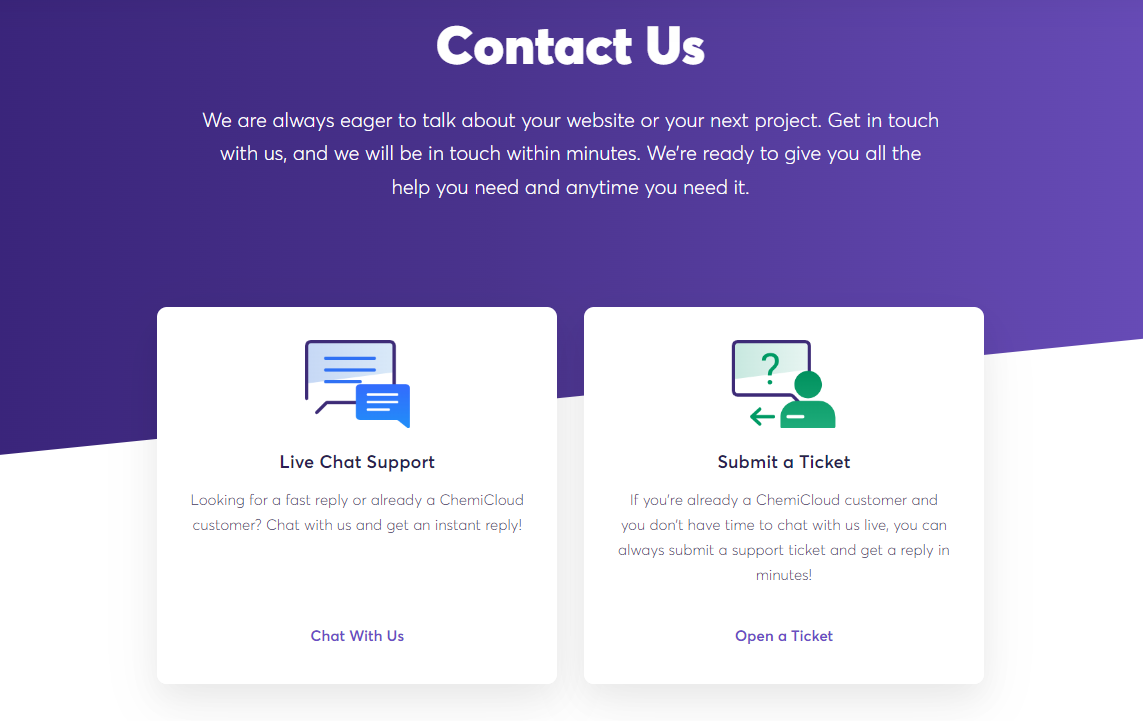
ChemiCloud offers quick response times, with live chat responses typically within 10 seconds and ticket resolutions in about 35 minutes, resulting in a high customer satisfaction rating of 98%. However, it lacks dedicated enterprise support found in Pagely’s offerings. ChemiCloud’s 24/7 availability and proactive monitoring make it a reliable choice for customers seeking continuous support and quick issue resolution.
Pagely vs Chemicloud: User feedback
Users highly appreciate this hosting provider for its exceptional reliability and top-notch customer support, often comparing it to having an on-call DevOps team. The platform is praised for its speed, security, and a suite of features designed specifically for WordPress hosting. Many find the management tools intuitive and effective, though some express a desire for improvements in specific areas like the Atomic dashboard and multi-user access. The main criticism revolves around the high cost, which is noted as a barrier for smaller operations, but many users agree the premium price is justified by the service’s quality and reliability.
ChemiCloud is highly praised for its exceptional customer service, largely attributed to its knowledgeable and responsive support team that is available 24/7. Users appreciate the reliable server performance, user-friendly control panel, and valuable features such as automatic backups and easy setup. Although there are some mentions of limited customization options and storage, the overall sentiment is overwhelmingly positive, highlighting ChemiCloud as a standout hosting provider that delivers on its promises. It is recommended for both small businesses and individuals seeking a dependable and efficient hosting solution.
Pagely vs Chemicloud: FAQ
Which platform is better suited for hosting WordPress websites?
Both Pagely and ChemiCloud are well-suited for hosting WordPress websites, offering features like one-click installs and daily backups. Pagely excels with high availability architecture and advanced security, making it suitable for enterprise-level WordPress hosting. ChemiCloud, with its more affordable pricing and robust performance features, is ideal for small to medium-sized WordPress sites.
Which hosting service offers better security features?
Pagely offers advanced security features, including multi-region redundancy, AWS Shield Standard for DDoS protection, and comprehensive disaster recovery options. ChemiCloud also provides robust security measures like DDoS protection, real-time malware scanning, and account isolation with CageFS. However, Pagely’s stringent security measures and dedicated resources give it a slight edge in this category.
What are the major differences in pricing and value between Pagely and ChemiCloud?
Pagely’s plans are targeted towards enterprise-level needs with prices starting from $199 per month, offering high-end configurations and robust performance. ChemiCloud provides more budget-friendly options, with shared hosting plans starting at $2.95 per month and WordPress hosting starting at $9.95 per month. ChemiCloud’s competitive pricing and extensive features offer greater value for small to medium-sized businesses, while Pagely’s higher costs are justified by its advanced capabilities.
Which hosting service offers more scalability options for growing websites?
Pagely offers advanced scalability with custom configurations for its Scale plan starting at $2500 per month, which includes bespoke vCPU, RAM, and SSD storage along with dedicated database resources. ChemiCloud’s scalability details are comparatively less explicit, which might pose challenges for rapidly growing businesses. Pagely’s managed DevOps and high-availability configurations provide robust solutions for scaling larger enterprises.
How do the providers handle email hosting and what features are included?
Pagely does not offer integrated email hosting services, requiring users to rely on third-party solutions for their email needs. On the other hand, ChemiCloud provides comprehensive email hosting with features like mailbox storage, email forwarders, spam filters, and advanced email options such as MailChannel and autoresponders. ChemiCloud’s extensive email hosting features make it a more complete solution for businesses.
The making of this blog
We followed a clear, step-by-step process to write and research this article.










